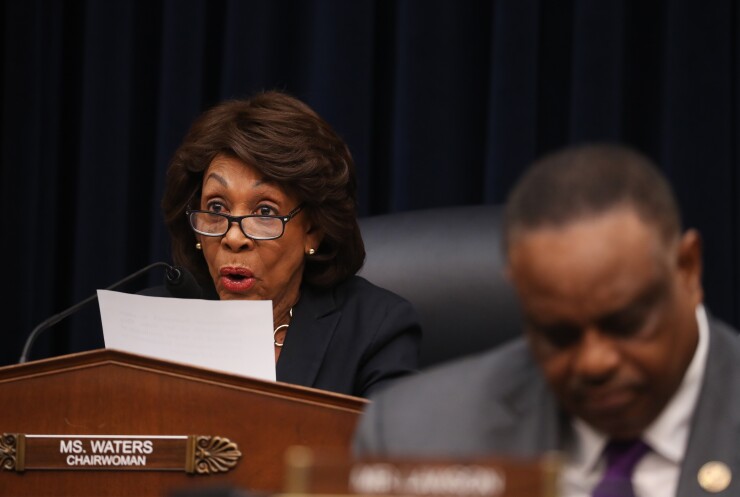WASHINGTON — Members of the House and Senate wasted no time Thursday giving wildly different assessments of regulators’ sweeping proposal to reform implementation of the Community Reinvestment Act.
The
But the effort has already elicited strong opinions on both sides. While the OCC took the lead on writing the CRA plan draft, the banking agencies struggled to find agreement on a joint approach. The Federal Reserve ultimately decided not to support the new proposal.
Bankers and Republicans applauded the steps to provide institutions with more flexibility to serve their communities, but Democrats and consumer groups worried the plan will dilute CRA-available resources in areas that need them most.
The proposal “appropriately clarifies what counts for CRA credit, evaluates CRA performance more objectively, and makes reporting more transparent and timely,” said Senate Banking Committee Chairman Mike Crapo, R-Idaho. “These proposed updates will allow covered institutions to better serve their communities.”

But Democratic leaders said the proposal does the opposite by incentivizing banks to look beyond their immediate communities to satisfy CRA requirements. In a letter Wednesday, Democrats in both the House and the Senate called on the bank regulatory agencies to give the public 120 days to comment on the proposal, which is twice as long as the OCC and FDIC provided in their proposal.
“Today’s proposal undermines a basic principle we agreed to in this country nearly 50 years ago — that banks should serve their customers and their communities,” said Sen. Sherrod Brown, D-Ohio, the Banking Committee’s ranking member. “In 2019, it is shameful that Trump regulators are ready to cast aside that principle and trample on a fundamental civil rights law, the Community Reinvestment Act, by pushing aside those who most need access to the banking system, including communities of color and rural communities.”
House Financial Services Committee Chairwoman Maxine Waters, who
“It is important to understand that when a proposal is being made by a single agency for the most part, asking everybody else to sign on, there are so many things we don't know,” Waters told reporters following the meeting, referring to the OCC. “The devil is in the details. When you talk about timing of this, and the time that is going to take the implement — we don't know that. So that's why we've got to take this apart.”
Rep. Patrick McHenry, R-N.C., said the proposed reforms are necessary in light of changes in the banking industry.
“This update reflects the transformation of banking services and will increase the effectiveness, transparency, and objectivity needed in [CRA] examinations,” he said.





